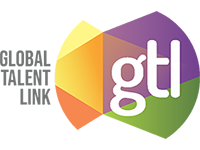How to develop yourself as a leader
A leader is an individual assigned to the top of the status hierarchy with natural born qualities that make him or her intrinsically influential and powerful. This is how many people view leadership, but the assumption that leadership is an inherent trait, as opposed to a learned skill, is false.
So if leadership can be learned, how do you become a leader? First, a leader does not just suddenly become a leader by being appointed to a position. Rather, leadership goes well beyond any title. Just being of a certain position, age, or education does not make someone a leader; instead, one becomes a leader through the process of interacting and building trust with the people around. Leadership is a process of societal interactions that can be developed in any person. Due to the basis of leadership in social interactions, a leader is in fact not isolated at the top of the hierarchy but instead integrated into the social environment.
Take a look inward
The first step to becoming a leader is to actually look inward. Good leaders are authentic and self-aware—they don’t try to act beyond themselves or change who they are. It is important be aware of your own strengths and weaknesses, as well as your personality attributes and the situations you thrive (or don’t thrive) in. Below are some questions to help you look inward. A good tip is to ask your friends and family members to give you honest feedback.
-
-
-
-
When you have seen me at my very best? (ideally, in the capacity of leading or working or on a team). What are the personal strengths you see me display?
-
Which of these are qualities that could serve me well in leadership roles throughout my life?
-
Are there certain situations that appear to bring out these qualities in me?
-
What are my gaps/areas where I lack a depth of skills, or personality attributes that could create problems for me, or the shadow side of strengths?
-
Are there specific situations that bring out my shortcomings and gaps?
-
What might be the consequences long term if I do not address these shortcomings and gaps?
-
What are some recommendations for short-term action steps I could take in the coming months to further develop a specific strength or to address a shortcoming/gap?
-
-
-
Practice your listening and communication skills
Because being a leader is a social act, it is imperative to develop effective listening and communication skills in order to engage with and lead the people around you. Communication is key in relating with others, building trust and relationships, and inspiring and empowering others. Here is a list of key skills to work on that improve communication.
-
-
-
-
empathy and openness
-
active listening
-
clarity and transparency
-
accepting feedback
-
-
-
The best way to practice is just by engaging with your friends and family members around you! You can also put yourself out there and practice by meeting new people at your school, workplace, neighborhood, etc.
Follow your passions
A passionate person has the ability to inspire and empower others—in others words, to be a leader! By finding and following your passions, you are acting true to yourself, and being genuine and authentic is one of the most important ways to relate with and build trust with others. By expressing your passions, you grow and give off positive energy that can spread to those around you. Picture some of the most inspirational people in this world or that you know, and they are all truly passionate about something!


sources: University of Findlay, Back Bay Books
Become a lifelong learner
Because leadership goes beyond any title, position, age, or education, a good leader must be flexible and adaptable to the situation. Just as social interactions are constantly changing, leading is adapting too. A leader will never have all the answers, so you must first be willing to admit your gaps and second, always be open to learning more. Being teachable and open to feedback from your environment are key components to growing as a leader. Learning from the community around you is one of the easiest ways to embody this leadership quality, so ensure you are surrounding yourself with people and opportunities that encourage you to grow.

source: University of New York in Prague
How can GTL help
At GTL, we provide a learning and enrichment community that can help Learners improve on all the skills mentioned above. We believe in the principle of lifelong learning and everyone in our community is a Learner continually seeking to improve themselves. Global Talent Link offers a comprehensive profile and report to every Learner which addresses their strengths and weaknesses to help them take an inward look at themselves. We offer multiple services focused on improving communication skills cross-culturally in our global community. We connect Learners who share similar passions, and empower Learners to pursue their passions at a higher level.
